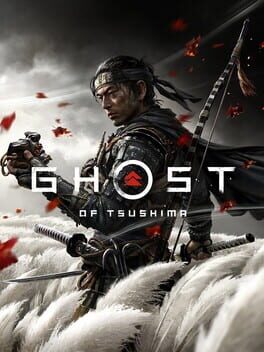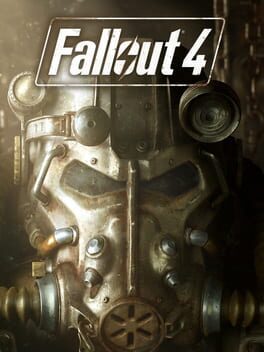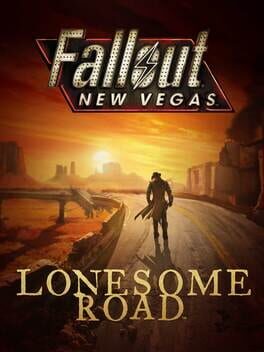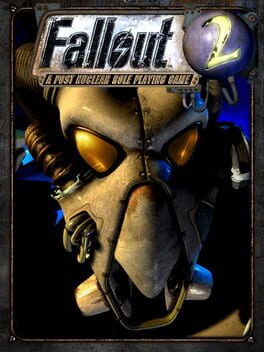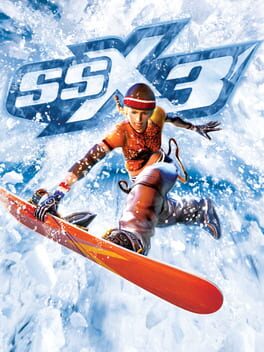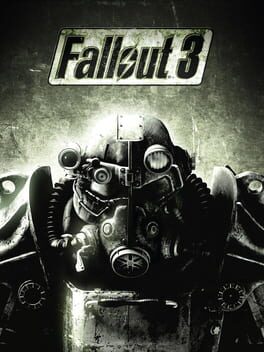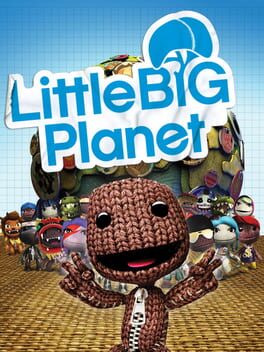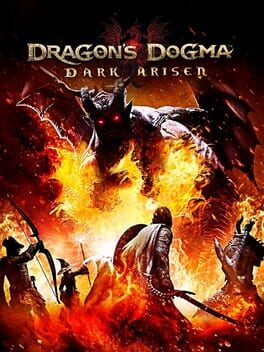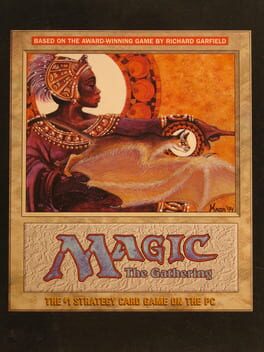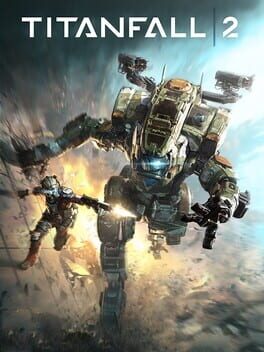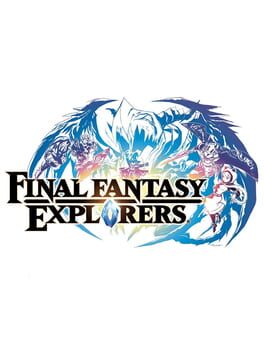lunch96
74 Reviews liked by lunch96
Ghost of Tsushima
2020
Fallout 4
2015
I've been keeping up with the tabletop game Wolves Upon the Coast lately, part of the current glut of fantasy heartbreakers but distinguished by some mechanical novelty in service to its focus on sacrifice in the pursuit of power. Where most games in this genre award character advancement based on the acquisition of wealth, Wolves grants the equivalent of a level each time a player boasts that she'll accomplish something difficult, dangerous, and impractical. There's a fanzine which characterizes the effect of this on play as dividing adventures into two types: one in the pursuit of glory and one in the pursuit of wealth with which to finance the former. It's compared to potlatch: adventure for the sake of experience is a wealth-destroying process.
Fallout 4 wasn't designed with this dynamic in mind: if it were, in fact, about spending hours gathering up resources and recruiting support for a big, symbolic attack on a raider camp that does more harm than good but advances your personal prestige, it might be a good videogame. For the first ten to fifteen hours, however, the thin trickle of good ammunition you loot off corpses doesn't really compensate you for the amount you've expended. Early adventuring is typically a net loss of resources unless you judiciously limit yourself to the absolutely miserable pipe weapons.
This is the game's way, I think, of pushing you into its other systems, its scavenging, crafting, and base-building. In my twenty-ish hours with the game, the only quests I really engaged with were for the Minutemen, which function as a tutorial for the settlements accompanied by a man who sounds vaguely confused and embarrassed by every line he delivers. Construction in the game is limited, somehow both counterintuitive and excessively simple, and typically represents a process that could be automated, but which instead demands manual engagement so as to keep it in the forefront of the player's mind: God forbid someone put down a sleeping bag without your permission.
I'm sure it's quite possible to play without ever engaging with the settlements, but if set up properly they provide you with too steady a stream of wealth to pass up. Getting to such a point involves a certain amount of skill point investment, as do the crafting skills which allow you to keep up with the game's damage scaling. There's no builds in Fallout 4, as one doesn't so much choose to focus on a certain approach as on getting one aspect of the singular, optimal end result, a character with good equipment and boosts to damage output, before the others. It's an utterly maximalist experience in which every mechanic is an intended part of the gameplay loop.
Like eating chocolate alongside potato chips, the alternation of base-building and dungeon-clearing works well to keep the player in its thrall: the inadequacy of each system fosters a craving for the other. In the absence of self-control, what broke this cycle for me was finally deciding to go to Diamond City, where about fifteen minutes of dialogue filled me with enough disgust to quit.
In light of the game being a single-player gacha, criticism of its actual content feels petty, but a few points stick out. Why are half the songs on the radio recycled from Fallout 3? Why does the prewar sequence present the period in exactly the same terms as the setting's propaganda?
Fallout 4 wasn't designed with this dynamic in mind: if it were, in fact, about spending hours gathering up resources and recruiting support for a big, symbolic attack on a raider camp that does more harm than good but advances your personal prestige, it might be a good videogame. For the first ten to fifteen hours, however, the thin trickle of good ammunition you loot off corpses doesn't really compensate you for the amount you've expended. Early adventuring is typically a net loss of resources unless you judiciously limit yourself to the absolutely miserable pipe weapons.
This is the game's way, I think, of pushing you into its other systems, its scavenging, crafting, and base-building. In my twenty-ish hours with the game, the only quests I really engaged with were for the Minutemen, which function as a tutorial for the settlements accompanied by a man who sounds vaguely confused and embarrassed by every line he delivers. Construction in the game is limited, somehow both counterintuitive and excessively simple, and typically represents a process that could be automated, but which instead demands manual engagement so as to keep it in the forefront of the player's mind: God forbid someone put down a sleeping bag without your permission.
I'm sure it's quite possible to play without ever engaging with the settlements, but if set up properly they provide you with too steady a stream of wealth to pass up. Getting to such a point involves a certain amount of skill point investment, as do the crafting skills which allow you to keep up with the game's damage scaling. There's no builds in Fallout 4, as one doesn't so much choose to focus on a certain approach as on getting one aspect of the singular, optimal end result, a character with good equipment and boosts to damage output, before the others. It's an utterly maximalist experience in which every mechanic is an intended part of the gameplay loop.
Like eating chocolate alongside potato chips, the alternation of base-building and dungeon-clearing works well to keep the player in its thrall: the inadequacy of each system fosters a craving for the other. In the absence of self-control, what broke this cycle for me was finally deciding to go to Diamond City, where about fifteen minutes of dialogue filled me with enough disgust to quit.
In light of the game being a single-player gacha, criticism of its actual content feels petty, but a few points stick out. Why are half the songs on the radio recycled from Fallout 3? Why does the prewar sequence present the period in exactly the same terms as the setting's propaganda?
Fallout 2
1998
The last time I played it, around six years ago, the representative moment in Fallout 2 seemed to be killing the Hubologists as part of the Shi questline: the tiny, underleveled Tom Cruise sprite exploding into gore as his attending hooded cultists float taunts about how they'll kill you in the name of L. Ron Hubbard. The outrage-seeking, the easy satire, the inarticulate disaffection for trends in contemporary social life, and the childlike joy in explicit violence all made the game seem not only like a perfect relic of the attitudes of the turn of the millennium, but of the milieu of American game development at the time. It's a moment at which the line between professional game development and say, flash games about torturing George Bush, is shown to have been terribly thin.
On the last run, what stood out was the converse sense in which this is the progenitor of the post-millenial open-world game, remarkable in just how fully-formed the genre already is. The tight structuring of the first game is almost fully abandoned alongside the time limit: the only thing really keeping the player from the end sequence at any given time is the fact that it's on the opposite end of the map from the starting position, and the accompanying confidence that the player will want to consume all the content with which she's presented along the way. The notion of all this being in service to a main quest isn't totally dispensed with the way it is in the fully realized form of the genre, but it's treated as something of a running joke.
Jokes are really the stock and trade of Fallout 2, and range from Monkey Island-adjacent clownishness at best to something like an adult animated comedy at worst. A few stray lines genuinely worked for me this time: the option to call a woman homophobic for rejecting you and a dialogue option reminiscent of Disco Elysium which only pops up if you've got meth in your inventory to offer a starving child.
The character of combat encounters in this game is really determined by the way armor and health progress more steadily than damage output, which plateaus around the middle of the game unless one uses perks to squeeze out an extra attack or two per round. The high-lethality casino shootouts which characterized the midgame for me were enormously fun in their demands that the player think carefully about range, action economy, and cover. The early game's typified by low-stakes slapfights with rats, and the later game is more of a flat DPS race between bullet sponges, but that sweet spot makes the combat engine seem like it has genuine potential as a TRPG.
Playing this game in a four-day stupor made it easier to see that the game gets worse as it goes on, that the relative focus and sense of tone informing the early areas falls apart around NCR and San Francisco. Navarro and the Oil Rig, in particular, while themed impeccably and nicely built up to over the course of the game, are remarkably empty as dungeons. This time, as with every other time I've played the game, I spoke to the scientist who releases the virus before talking to the one in the reactor room, because the former is placed before the latter, and had to spend twenty minutes looking for a bomb so that I could still trigger the escape sequence.
The totally disparate nature of the world it creates, made up of stereotypes and references and the conflicting aesthetic and thematic preferences of its authors, retains it appeal for me. It's like a constellation of what it meant to be a socially awkward man in the late-90s, like a Rifts campaign frozen in amber. It's commonplace to present New Vegas as the more authentic sequel to Fallout 2 than Bethesda's attempt, but each game's making an effort to pare down an incredibly eclectic product into something like a brand.
On the last run, what stood out was the converse sense in which this is the progenitor of the post-millenial open-world game, remarkable in just how fully-formed the genre already is. The tight structuring of the first game is almost fully abandoned alongside the time limit: the only thing really keeping the player from the end sequence at any given time is the fact that it's on the opposite end of the map from the starting position, and the accompanying confidence that the player will want to consume all the content with which she's presented along the way. The notion of all this being in service to a main quest isn't totally dispensed with the way it is in the fully realized form of the genre, but it's treated as something of a running joke.
Jokes are really the stock and trade of Fallout 2, and range from Monkey Island-adjacent clownishness at best to something like an adult animated comedy at worst. A few stray lines genuinely worked for me this time: the option to call a woman homophobic for rejecting you and a dialogue option reminiscent of Disco Elysium which only pops up if you've got meth in your inventory to offer a starving child.
The character of combat encounters in this game is really determined by the way armor and health progress more steadily than damage output, which plateaus around the middle of the game unless one uses perks to squeeze out an extra attack or two per round. The high-lethality casino shootouts which characterized the midgame for me were enormously fun in their demands that the player think carefully about range, action economy, and cover. The early game's typified by low-stakes slapfights with rats, and the later game is more of a flat DPS race between bullet sponges, but that sweet spot makes the combat engine seem like it has genuine potential as a TRPG.
Playing this game in a four-day stupor made it easier to see that the game gets worse as it goes on, that the relative focus and sense of tone informing the early areas falls apart around NCR and San Francisco. Navarro and the Oil Rig, in particular, while themed impeccably and nicely built up to over the course of the game, are remarkably empty as dungeons. This time, as with every other time I've played the game, I spoke to the scientist who releases the virus before talking to the one in the reactor room, because the former is placed before the latter, and had to spend twenty minutes looking for a bomb so that I could still trigger the escape sequence.
The totally disparate nature of the world it creates, made up of stereotypes and references and the conflicting aesthetic and thematic preferences of its authors, retains it appeal for me. It's like a constellation of what it meant to be a socially awkward man in the late-90s, like a Rifts campaign frozen in amber. It's commonplace to present New Vegas as the more authentic sequel to Fallout 2 than Bethesda's attempt, but each game's making an effort to pare down an incredibly eclectic product into something like a brand.
Fallout
1997
There's a version of this game that exists between its admirers, one with too solid a body of discourse built up around it to be called imaginary. This Fallout is the centerpiece of a secular religion of CRPG design, attended by Deus Ex and Planescape Torment, though perhaps finally consigned to the status of Old Testament anticipation by Disco Elysium. Hbomberguy is this faith's high priest.
I'm fond of the Fallout of conversation, in which the skills are consistently useful, there are multiple, organic solutions to problems and the writing is thoughtful and nuanced. The kind of guy whose praise perpetuates belief in this game is often the least racist kind of PC gamer. I'm also fond, however, of the playable piece of software released in 1997 bearing the same name, and feel its merits should be articulated as well.
The structure of Fallout's world is less reminiscent of anything else called an RPG than it is of the evidence-gathering phase of a Phoenix Wright case. There's a manageable number of locations presented through a menu, and in each of them one pokes and prods around, with novel bits of optional content with little long-term bearing but which serve as their own reward, until something moves the world state forward. Fallout's chief innovation wasn't so much opening up the CRPG as subjecting it to the same rigorous structure as the adventure game. While there are filler enemies and random encounters, each of the game's major combats provides the player with the tools necessary to manage the next: Vault 15's SMG, for example, allows the player to deal with the Khans, whose armor makes the upcoming chain of large group firefights survivable.
That progression is driven by new gear and information rather than leveling keeps any of the game's areas from feeling extraneous. Nothing in Fallout ever overstays its welcome, which is enormously beneficial: ideas and characters which would be insufferable in a game a few hours longer are instead presented straightforwardly and immediately moved on from. It's this brevity, and the recognition that a thinly-sketched character is almost always preferable to an overwrought one, that Fallout inherits from tabletop, rather than anything like freedom of choice. It's perhaps the best example of pacing in a western CRPG.
Aside from a few points at which the player's given multiple, equidistant leads to follow up on at once, the progression is incredibly taut and, because its only gating mechanisms are information and ability, feels more essential and less arbitrary than equivalents in the genre. Most of the choices of approach are back-loaded into the last two areas of the game, where the character skills which have been largely useless for the previous two-thirds of the game now function as keys. That these areas can be so easily circumvented by simply wearing a disguise undercuts their significance, but ultimately a high Speech or Science or Big Guns is treated like an item in an adventure game. This is made possible by and supports Fallout's limited scale and general restraint: it's a game where a skill or a tool used two or three times is worth going out of one's way for.
It's probably the first Western RPG to have really good art direction, and I'd suggest resisting the urge to play the game at a modern resolution in order to really appreciate the spritework. The voice work is shockingly solid, and with the exception of some of the better New Vegas characters I don't think the series has ever quite matched the talking heads in this game for memorability. It is so sad to watch the cinematics in this first entry present what would become the series aesthetic as succinctly and stylishly as they do, and to know this would be milked dry in later years as these games got more and more saturated with 50s-dystopian broad satire.
I'm fond of the Fallout of conversation, in which the skills are consistently useful, there are multiple, organic solutions to problems and the writing is thoughtful and nuanced. The kind of guy whose praise perpetuates belief in this game is often the least racist kind of PC gamer. I'm also fond, however, of the playable piece of software released in 1997 bearing the same name, and feel its merits should be articulated as well.
The structure of Fallout's world is less reminiscent of anything else called an RPG than it is of the evidence-gathering phase of a Phoenix Wright case. There's a manageable number of locations presented through a menu, and in each of them one pokes and prods around, with novel bits of optional content with little long-term bearing but which serve as their own reward, until something moves the world state forward. Fallout's chief innovation wasn't so much opening up the CRPG as subjecting it to the same rigorous structure as the adventure game. While there are filler enemies and random encounters, each of the game's major combats provides the player with the tools necessary to manage the next: Vault 15's SMG, for example, allows the player to deal with the Khans, whose armor makes the upcoming chain of large group firefights survivable.
That progression is driven by new gear and information rather than leveling keeps any of the game's areas from feeling extraneous. Nothing in Fallout ever overstays its welcome, which is enormously beneficial: ideas and characters which would be insufferable in a game a few hours longer are instead presented straightforwardly and immediately moved on from. It's this brevity, and the recognition that a thinly-sketched character is almost always preferable to an overwrought one, that Fallout inherits from tabletop, rather than anything like freedom of choice. It's perhaps the best example of pacing in a western CRPG.
Aside from a few points at which the player's given multiple, equidistant leads to follow up on at once, the progression is incredibly taut and, because its only gating mechanisms are information and ability, feels more essential and less arbitrary than equivalents in the genre. Most of the choices of approach are back-loaded into the last two areas of the game, where the character skills which have been largely useless for the previous two-thirds of the game now function as keys. That these areas can be so easily circumvented by simply wearing a disguise undercuts their significance, but ultimately a high Speech or Science or Big Guns is treated like an item in an adventure game. This is made possible by and supports Fallout's limited scale and general restraint: it's a game where a skill or a tool used two or three times is worth going out of one's way for.
It's probably the first Western RPG to have really good art direction, and I'd suggest resisting the urge to play the game at a modern resolution in order to really appreciate the spritework. The voice work is shockingly solid, and with the exception of some of the better New Vegas characters I don't think the series has ever quite matched the talking heads in this game for memorability. It is so sad to watch the cinematics in this first entry present what would become the series aesthetic as succinctly and stylishly as they do, and to know this would be milked dry in later years as these games got more and more saturated with 50s-dystopian broad satire.
SSX 3
2003
A quick aside;- Spent the past few weeks on a bit of an PS3 emulation kick, knocking out a few stragglers from the gen 8 library that always managed to elude me. One of the games I tried out was the 2012 SSX reboot nobody really likes - god knows why I chose to start my foray into this series with that entry, it was just kind of there I guess. It was alright! Hard to really fault what appears to be a rock solid racing foundation w/ incredible feedback & thrills. I managed to get surprisingly close to the end of the game before my motivation careened off a couloir with the insistence of an awful statistical equipment store, gimmick missions like the oxygen tank, glider, solar power & rear-view cameras. If only EA made no less than three games beforehand where this memetic & metric excess is absent!!
Anyway SSX 3 is fucking sick. Nothing short of a landmark achievement for this game to accomplish as much as it does way back in 2003, all the while fully maintaining this feeling of modernity that makes it absolutely breezy to pick up blindly in current year. Snowboarding controls iterated on to a mirror shine, mechanically dense & full of freedom of expression in how you can approach the shockingly sprawling slopes that spread their tendrils through a track like a spaghetti bowl. Repeated heats thru race courses would have patchnotes I swear, the more I familiarised myself with their layout the more they’d pull the rug out from under me to reveal new avenues and secret paths. I love the blisteringly fast risk reward & fuckup cascade that can happen when your antic hubris meets its match & your teeth meet the grind rail. I fully expected this to just control like a breezy Tony Hawk clone or something, but it's so bespoke to itself & intensely demanding in a way that I adored losing myself to the mastery of.
Perhaps unshocking, but it’s also striking to me how much better this game looks over the next-gen reboot lol. Feels as though the art designers had no say in the way SSX 2012 looked, rendering the majority of its slopes a very grey textureless mush that only came across as too scared to introduce visually interesting locales like the audience’s eyes would just burst like blueberries under the tropical sun or something. SSX 3’s mountain is lined up like a daisy chain of unique vignettes with key visual identities and senses of purpose in the macro. I adore how the lighting and skybox would change subtly as you progress down the mountain, so when you do the ultimate no loading screen downhill jam through every track you’ve familiarised yourself with it feels like such a perfect odyssey. Unlockable Adam Warren art is rly great, particularly adore the concept art of the courses themselves and how franco belgian they look lol. Eventually I’ll play Tricky and enter the heated internal angel & devil inside of me debate between which of these two entries I prefer. I DEEPLY want these games to be added to that Noclip.website so I can see how these tracks curl in on themselves.
Anyway SSX 3 is fucking sick. Nothing short of a landmark achievement for this game to accomplish as much as it does way back in 2003, all the while fully maintaining this feeling of modernity that makes it absolutely breezy to pick up blindly in current year. Snowboarding controls iterated on to a mirror shine, mechanically dense & full of freedom of expression in how you can approach the shockingly sprawling slopes that spread their tendrils through a track like a spaghetti bowl. Repeated heats thru race courses would have patchnotes I swear, the more I familiarised myself with their layout the more they’d pull the rug out from under me to reveal new avenues and secret paths. I love the blisteringly fast risk reward & fuckup cascade that can happen when your antic hubris meets its match & your teeth meet the grind rail. I fully expected this to just control like a breezy Tony Hawk clone or something, but it's so bespoke to itself & intensely demanding in a way that I adored losing myself to the mastery of.
Perhaps unshocking, but it’s also striking to me how much better this game looks over the next-gen reboot lol. Feels as though the art designers had no say in the way SSX 2012 looked, rendering the majority of its slopes a very grey textureless mush that only came across as too scared to introduce visually interesting locales like the audience’s eyes would just burst like blueberries under the tropical sun or something. SSX 3’s mountain is lined up like a daisy chain of unique vignettes with key visual identities and senses of purpose in the macro. I adore how the lighting and skybox would change subtly as you progress down the mountain, so when you do the ultimate no loading screen downhill jam through every track you’ve familiarised yourself with it feels like such a perfect odyssey. Unlockable Adam Warren art is rly great, particularly adore the concept art of the courses themselves and how franco belgian they look lol. Eventually I’ll play Tricky and enter the heated internal angel & devil inside of me debate between which of these two entries I prefer. I DEEPLY want these games to be added to that Noclip.website so I can see how these tracks curl in on themselves.
Fallout 3
2008
LittleBigPlanet
2008
Certainly not lost on me how shallow my revisit of LBP1 was. This was something of a childhood fave of mine I threw countless hours at; be it in couch co-op with fwiends or alone in my room exploring the avalanche of user-created content people spun together. Neither of which was a factor in me revisiting it for the first time in well over a decade now (jezus farckin christ!!!!), the servers are long gone and I’d need to be the richest man alive to bribe someone to play this with me over a cocktail of Parsec + RPCS3 input lag. Nobody will ever understand the joy of slapping the aztec cock motif on your co-op partners’ faces siiiighghhh…. Still, an illuminating experience that rekindled something in my heart about what LBP1 stood for!
Admittedly, I was always more of an LBP2 kid, these games being modular meant there was very little reason to revisit the first game once the sequel came out. There is a very strong difference in vibes between the two games though, if LBP1 excels at anything, it’s in encouraging the player to go off and create for themselves. It’s kind of wild the extent to which LBP1 offers and explains its tools to the player - its relatively simple levels make no effort to hide the gadgets that make ingame events work. Stages are littered with visible emitters, tags, switches, stuff like only-slightly offscreen circuitry that you can watch move around to inform a boss of its attack patterns and phases. It feels like a child’s art project or something, a simple array of pulleys and string animating rudimentary creatures and swings. It’s all so laid bare, I kind of adore it, and is certainly a handcrafted energy that LBP2 loses in its explosion of visual polish. The constant delivery of decorations, objects, prebuilt things you can make your own edits of, it’s no wonder this game blew up in the way it did - it’s with you every step of the way and always acts as a shockingly good teacher for its own mechanics.
Anyway this was a lot of fun. Unquestionably a hilarious platforming title to insist upon having no-death run rewards when so much of your survivability hinges on Sackboy’s physics-based astrology. You don’t realise how much nostalgia you have for something until the first thirty seconds of a song makes you tear up. This kind of williamsburg scrapbook aesthetic is hard to stomach nowadays but it really works here. Holy shit I can’t believe the racist caricatures this game has in every corner, this truly is a quintessentially British game.
Admittedly, I was always more of an LBP2 kid, these games being modular meant there was very little reason to revisit the first game once the sequel came out. There is a very strong difference in vibes between the two games though, if LBP1 excels at anything, it’s in encouraging the player to go off and create for themselves. It’s kind of wild the extent to which LBP1 offers and explains its tools to the player - its relatively simple levels make no effort to hide the gadgets that make ingame events work. Stages are littered with visible emitters, tags, switches, stuff like only-slightly offscreen circuitry that you can watch move around to inform a boss of its attack patterns and phases. It feels like a child’s art project or something, a simple array of pulleys and string animating rudimentary creatures and swings. It’s all so laid bare, I kind of adore it, and is certainly a handcrafted energy that LBP2 loses in its explosion of visual polish. The constant delivery of decorations, objects, prebuilt things you can make your own edits of, it’s no wonder this game blew up in the way it did - it’s with you every step of the way and always acts as a shockingly good teacher for its own mechanics.
Anyway this was a lot of fun. Unquestionably a hilarious platforming title to insist upon having no-death run rewards when so much of your survivability hinges on Sackboy’s physics-based astrology. You don’t realise how much nostalgia you have for something until the first thirty seconds of a song makes you tear up. This kind of williamsburg scrapbook aesthetic is hard to stomach nowadays but it really works here. Holy shit I can’t believe the racist caricatures this game has in every corner, this truly is a quintessentially British game.
Live A Live
2022
I really do hate feeling that I’m undervaluing effort. If anything, I should probably have just played a fantranslation of the original Live A Live, so that I could feel a little more as though this game’s web of genre anthologism was particularly formally impressive or functionally experimental. It’s a little personally embarrassing how much slack I’m willing to give older gens for breaking their spines over ambitious systems I take for granted nowadays, and narratives I’d find quaint in anything released now. I want to lay blame on Octopath’o’vision more than anything.
Live A Live’s cool, I won’t deny - the individual cinematic reverence to which each of these chapters are framed, the unique ways their characters express themselves thru bespoke mechanics like Pogo’s rudimentary crafting & hunting, Shifu’s already capped level & disciple training, Akira’s overworld psi abilities… I just don’t think there’s enough meat on any of this game’s bones for me to feel strongly either way about any of the stories, let alone for the final act to even feel self-justified that its cast have the capability to act as convincing anti-hate thesis statements - and not simply an extension of what Live A Live always does; falling back to the motions of genre.
Playing through Square’s library has made me feel incredibly assured in their ambitions and creativity, kindling much of what I find so mysterious and evocative about the JRPG genre. Games that spin themselves wildly into their own neuroses and bloom into an orchard of mechanics and character dynamics we’re today still only barely reaching similar heights of. To me. Live A Live feels like a demo disk or something of that mission statement, glimpses into their process but, too brief for hooks to really set in.
Live A Live’s cool, I won’t deny - the individual cinematic reverence to which each of these chapters are framed, the unique ways their characters express themselves thru bespoke mechanics like Pogo’s rudimentary crafting & hunting, Shifu’s already capped level & disciple training, Akira’s overworld psi abilities… I just don’t think there’s enough meat on any of this game’s bones for me to feel strongly either way about any of the stories, let alone for the final act to even feel self-justified that its cast have the capability to act as convincing anti-hate thesis statements - and not simply an extension of what Live A Live always does; falling back to the motions of genre.
Playing through Square’s library has made me feel incredibly assured in their ambitions and creativity, kindling much of what I find so mysterious and evocative about the JRPG genre. Games that spin themselves wildly into their own neuroses and bloom into an orchard of mechanics and character dynamics we’re today still only barely reaching similar heights of. To me. Live A Live feels like a demo disk or something of that mission statement, glimpses into their process but, too brief for hooks to really set in.
Fallout: New Vegas
2010
this game is so perfect to me, i'm terrified of what it will be like with a 100GB coat of paint this month. you can feel the re4 team on this joint & it seeps through every corner, impact animation and sound effect. i think it has the perfect amount of detail with enough to leave to your imagination-- is that not the spirit of fantasy? does that not hinder the mystery for you? must we see the pores and every strand of hair of every npc at the cost of playability and a smooth, clean experience such as this? i hope i will be proven wrong but as a modern games cynic, i can't see it getting much better than this.
Magic: The Gathering
1997
been playing hella yugioh and moved back 2 my parents place which might indicate illness & questionable judgment 2 some (🧍♂️) but confident in saying this is juiced. played this with a 2016 mod or smthn similar that added in cards up until then & just went absolutely 2 town with some green/white creature spam. just gets that i like being teased a lil with some perfunctory side quests and random encounters until i can go in the shop & get that one absolutely busted card that'll take my deck from celtics shaq at the free throw line brick machine to the most consistent bomb after bomb pile u've seen since the obama administration. late 90s British pc gaming influence all over this tooooooo every piece of armor is grainy as fuck all the sorceresses & enchantress sprites are just recolored elviras every creature from beyond the grave has glowing red eyes. shit just closes itself automatically when u beat the game too no credits no nayfin this is just gaming at its finest man.
Titanfall 2
2016
Solid level design and some short-lived mechanical novelty, but never really rises above being good by the standards of a campaign in a multiplayer FPS. Rare example of a game that understays its welcome, there's a few more hours worth of ideas in this one. The ending's effectively set up and then delivers absolutely nothing: it was very funny when the villain threw an Apex Legends ad at you, though.
